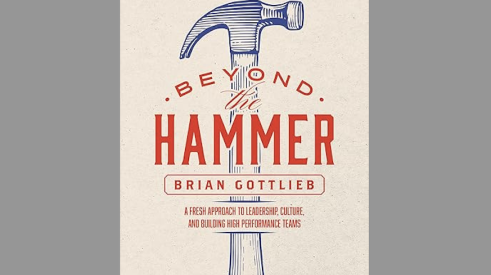There are 137 businesses on Jail To Job’s list of companies that hire ex-offenders. Lots of trucking operations are on the list, as well as many big national restaurant chains—Appleby’s, Chili’s, and Denny’s—and retailers, such as Trader Joe’s, Toys “R” Us, Walmart, and The Home Depot. So are rent-a-car businesses, such as Budget. But, except for Andersen Windows & Doors, the home improvement industry is noticeably absent.
What do the restaurant, trucking, retail, and hospitality industries know that home improvement contractors haven’t figured out? For an industry desperate for people to install windows and siding, replace roofs, and demo and rebuild kitchens and bathrooms, it’s a question worth asking.
The Fear: Negligent Hiring
As recently as 15 years ago, most employers screened out convicted felons or anyone with a criminal record. “A 2003 study of business in four major cities found that only 12.5 percent of employers were willing to accept applications from ex-convicts,” notes business writer Kathryn Hawkins (“Why You Should Consider Hiring Ex-Convicts”). The process was made simple by a checkbox on the employment application next to the question: Have you ever been convicted by a court? Check that box and your application went right in the trashcan.
Prospective employers had their reasons. Who wants to take a chance that the applicant won’t work out, or will disrupt the working environment or otherwise prove difficult to manage? But what makes employers, including contractors, particularly reluctant to hire ex-offenders is the potential civil liability should the applicant repeat his or her offense, only this time with their client as the victim.
If you hired someone with a criminal history who then committed a crime against a client while in your employ—let’s say theft, or even assault—you could be sued for negligent hiring, for which the average settlement is nearly $1.5 million, as of last year. It is less risky to hire an independent contractor, in which case, a business is “generally not legally responsible for the contractor’s misdeeds,” according to an article on the Pasha Law website.
Sheer Numbers
But it’s more difficult today to simply dismiss applicants out of hand. Credit that to the Ban the Box movement. Driven by civil rights groups and advocates for ex-offenders, the movement has called on employers to eliminate that “Have you ever…” checkbox on applications. They’ve also lobbied state legislatures and local municipal authorities to legislate the box out of existence; so far 28 states and more than 150 municipalities have made it illegal to ask about prior conviction on an application form. Ban the Box argues that people who’ve made mistakes deserve the right to rebuild their lives, and they’re not going to be able to do that without working.
But another fact that’s driving the Ban the Box movement is the sheer number of ex-offenders. No other nation in the world incarcerates its population at the rate the U.S. does, or has as many people behind bars as this country does. At any given moment, there will be approximately 2.5 million people in an American prison or jail, and an estimated 70 million people in this country have a prior arrest or conviction record. Tough sentencing laws, especially for drug offenses, have created this huge pool of prior offenders, many of whom are incarcerated for nonviolent offenses.
And the fact that these individuals have such a tough time finding work drives recidivism rates. “More than half a million people are released from federal and state jails and prisons in this country each year. Following their release, roughly two-thirds of ex-offenders are arrested for a new offense within three years, resulting in a seemingly unbreakable vicious cycle,” notes Peter Cover and Lee Bowes of America Works in an article on the connection between work and recidivism. And in an article at The Huffington Post, Mike Green cites a recent Bureau of Justice study in which “three of every four released prisoners were re-arrested within the five-year life of the study … and an extraordinarily high percentage (89 percent) of ex-felons re-arrested were unemployed.”
Blogger and author of From Jail To a Job, Eric Mayo, states the case most simply when he writes, “the sooner they are able to get jobs, the greater are their chances of not going back to prison.”
Reasons to Consider
There are some solid business reasons for hiring someone with a criminal record:
1) They’re determined to succeed. Given a job, ex-offenders often feel as if they have something to prove. They work harder and longer, and turn over less frequently. Company owners often describe ex-offenders they’ve hired as model employees. “Since most people who have spent time in prison find it difficult to get jobs and re-enter society, they'll likely be extremely grateful and loyal to any employer who gives them a chance,” Jhaneel Lockhart points out at Business Insider.
2) Your company earns tax breaks. Tax incentives exist for businesses that hire an ex-offender. Through the Department of Labor, the U.S. government offers a Work Opportunity Tax Credit to employers who hire within target groups, including ex-offenders. Beyond that, the Federal Bonding Program provides Fidelity Bonds covering the first six months of employment at no cost to the job applicant or the employer. Many states also offer grants.
3) Skills brought to the job. Ex-offenders often get job training in prison, including training in the kinds of skills your installers need to have. “Although many people in prison don’t have college degrees,” writes Catherine Rohr at Inc., “the go-getters take college and vocational courses while incarcerated and pursue degrees upon release.”
Changing Views
Just because there is no “Box” doesn’t mean you can’t question someone in an interview situation about prior convictions. Your best bet, as an employer, is to make an informed and careful hiring decision. Would you hire someone convicted of embezzlement to handle your company’s money, or someone convicted multiple times of aggravated assault to deal with sometimes difficult homeowners? Probably not. But that doesn’t mean you should dismiss the idea of hiring from what Rohr calls (and others agree) is “a great source of untapped talent.”
Views have changed considerably on the idea of hiring ex-offenders, as pointed out by U.S. attorney for the Northern District of Alabama, Joyce White Vance, who’s worked with the Birmingham Business Alliance to encourage hiring ex-offenders. “Six or seven years ago, employers looked at you like maybe you had a screw loose when you talked about hiring ex-offenders,” Vance told The Guardian. “Now it’s much more part of the mainstream conversation.”
Add new comment
Related Stories
3 Areas Successful Remodelers Focus On
Industry advisor Mark Richardson shares what separates the losing from the winning in today’s market
Peppermill Finish
NAHB: Remodelers Face Challenges and Opportunities
Remodelers face a uniquely strong market yet remain challenged by codes and costs
Selling Your Company to Your Team
From company valuation to terms of the transfer, here’s a look at how three different remodelers made the deal work
Re-Bath Expands its Reach with New Franchise
The company signs a deal with brothers who are first-time franchisees
Pro Remodeler’s 2024 Pinnacle Experience Reaches New Heights
The sold-out event covered leadership, lead gen, sales, and technology
Brian Gottlieb Receives Remodeling Mastery Award
Presented by industry icon, Mark Richardson, the award celebrated Gottlieb’s extraordinary impact on remodeling
What's Beyond the Hammer?
Working with Brian Gottlieb on the book Beyond the Hammer provided a masterclass on how to build an aligned team
5 Counterintuitive Strategies to Improve Your Business
Follow these strategies to inspire employees, instill trust, and beat the competition
Couple Act As Much More Than General Contractors
How LBR Partners uplifts and educates their Spanish-speaking trade partners













